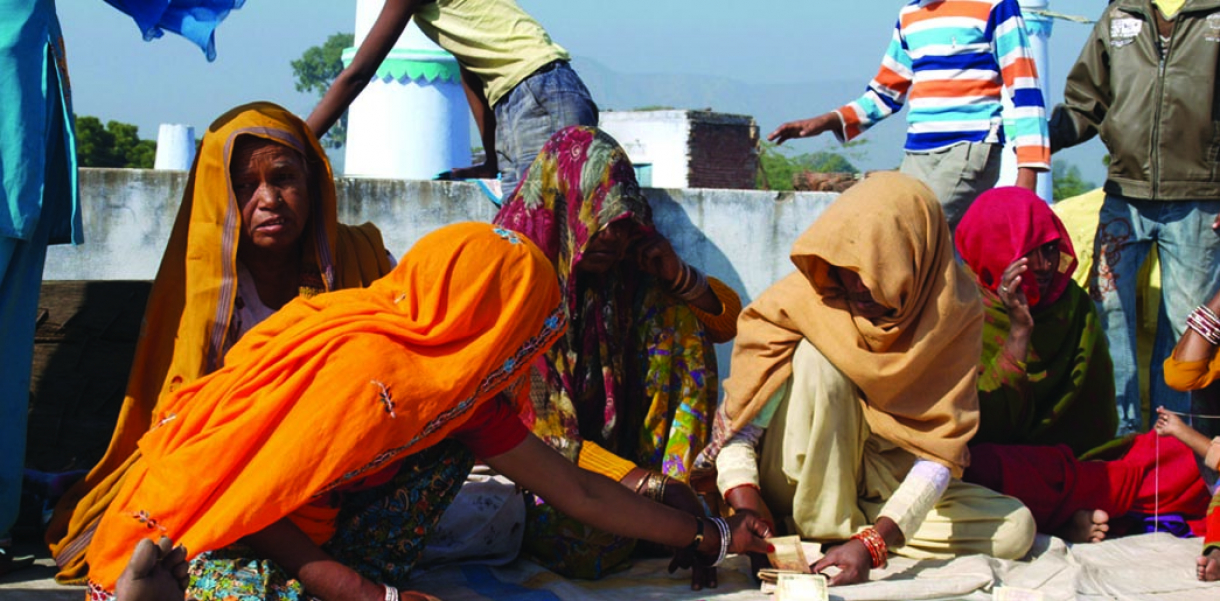How do you break the poverty cycle when you cannot even read or write your own name, let alone fill out a bank loan application? How do you find a way out of poverty when your illiteracy is standing in the way of all your dreams? Akshay Sharma has found one possible solution with LaXmi – a board game to facilitate financial literacy learning – with which he hopes to help 212 million illiterate Indian women make better lives for themselves.
1/3 of the female Indian population is illiterate. That is equivalent to around 212 million women, who cannot read or write their own name in India alone. Being illiterate is an extreme limitation to these women, and although much is done to increase the number of girls going to school, little has been done for grown women.
One big issue for these women is their inability to apply for financial help. With 50 million women earning less than $2 a day, many need extra help to secure their survival. However, without being able to fill out a standard form, the women are not eligible for any types of loans. Untill now…
LaXmi is a financial literacy system for semi/illiterate women engaged in micro financing in rural India. What is different about LaXmi is how it works. LaXmi is designed similar to a board game and helps illiterates visualize which loans they need (e.g. to buy a cow) and how long it will take to pay back the loan with interests. The game also helps women understand the processes of micro financing as well as teaches them about managing their finances in general.
Developed by Akshay Sharma, the system incorporates both an analogue and a digital component to facilitate comprehensible training for women who form Self Help Group (SHG). It is a language independent system with an engaging and interactive way of learning about the intricacies of financial literacy and financial planning.
Micro financing has proven to be effective in empowering women at the grass root levels. Most of the members of Self Help Groups are illiterate, and as a result have to depend on a professional accountant to maintain their records. Sharma saw an opportunity for Design intervention and created a visual book keeping system that would not only engage the members in the process but also reduce their dependence on the group accountant.




